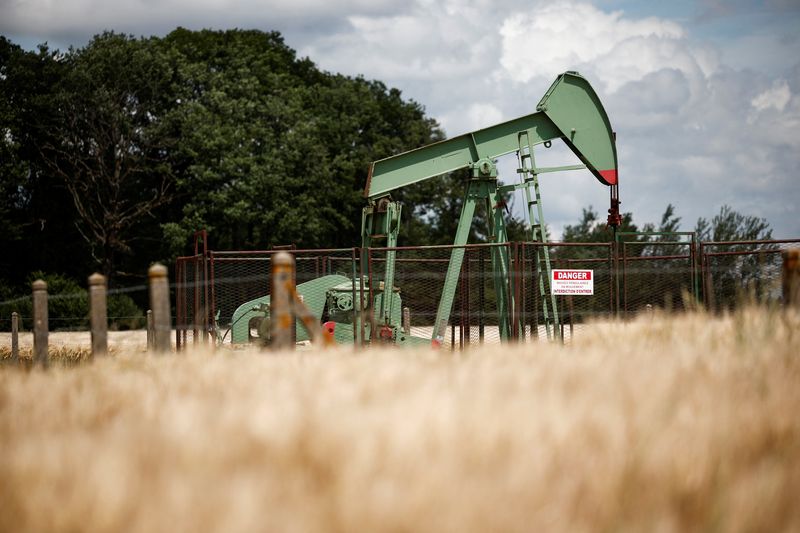By Anna Hirtenstein
LONDON (Reuters) -Oil prices rose on Friday and were on track for a third straight week of gains as traders focused on potential supply disruptions from sanctions while icy conditions in parts of the United States and Europe are expected to drive up fuel demand.
Brent crude futures gained $1.06 cents, or 1.4%, to $77.98 a barrel by 0904 GMT. U.S. West Texas Intermediate crude futures advanced $1.04 cents, or 1.4%%, to $74.96.
Over the three weeks to Jan. 10, Brent has climbed by close to 7% while WTI has jumped nearly 8%.
“There are several drivers today. Short term, the weather is very cold across the U.S., driving up demand for fuels. Longer term, the market is focused on the prospect for additional sanctions, especially against Iran,” said Ole Hansen, head of commodity strategy at Saxo Bank.
The U.S. weather bureau expects central and eastern parts of the country to experience below-average temperatures. Many regions in Europe have also been hit by extreme cold and are likely to continue to experience a colder than usual start to the year, which JPMorgan analysts expect to boost demand.
“We anticipate a significant year-over-year increase in global oil demand of 1.6 million barrels a day in the first quarter of 2025, primarily boosted by … demand for heating oil, kerosene and LPG,” they said in a note on Friday.
Ahead of U.S. President-elect Donald Trump’s inauguration on Jan. 20, concerns are mounting over potential supply disruptions from tightening sanctions against Iran and Russia while oil stockpiles remain low.
This could materialise even earlier, with U.S. President Joe Biden expected to announce new sanctions targeting Russia’s economy to bolster Ukraine’s war effort against Moscow before Trump takes office. A key target of sanctions so far has been Russia’s oil industry.
Meanwhile, the premium on the front-month Brent contract over the six-month contract reached its widest since August this week, potentially indicating supply tightness at a time of rising demand.
Inflation worries are also delivering a boost to crude oil prices, said Saxo Bank’s Hansen. Investors are growing concerned about Trump’s planned tariffs, which could drive inflation higher. A popular trade to hedge against rising consumer prices is through buying oil futures.
Oil prices have rallied despite the U.S. dollar strengthening for six straight weeks, making crude oil more expensive outside the United States.
(Reporting by Anna HirtensteinAdditional reporting by Sudarshan VaradhanEditing by David Goodman)
Source link
